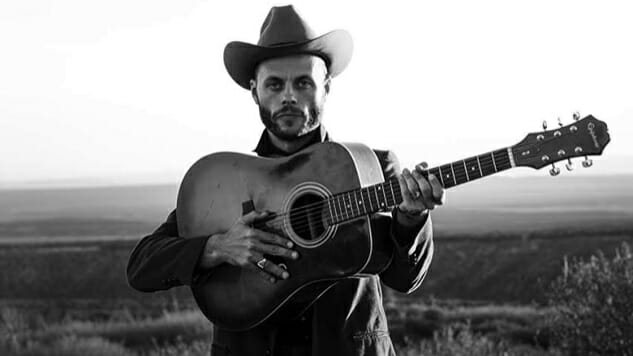The Curmudgeon: Two Ways to Write about Music
Charley Crockett courtesy of the artist
Elvis Presley was one of the greatest singers of the 20th century, but that wasn’t the only factor in his fame. His slicked-back hair and wiggling pelvis also played a role. The same with the Beatles—they were terrific singers and songwriters, but their mop-top haircuts and irreverent press conferences boosted their success. The same is true of Prince and his ambiguous race/sexuality, of Michael Jackson and his single-gloved moonwalk, and of Beyoncé and her eroticized costumes.
Every musician who ever became famous owes some of that success to the music and some to non-musical factors. In cases such as Garth Brooks, Madonna and MC Hammer, one can argue that the non-musical outweighed the musical. This dynamic presents a problem for those of us who write about music: Do we try to explain the fame by describing the musical and non-musical elements on equal footing? Or do we try to explain the music by disentangling it from all other considerations? Are we cultural anthropologists or music critics?
In a society that fetishizes celebrity and squirms uncomfortably around art, the pressure from publishers, editors and readers is all toward the first approach. So a majority of the writing about music takes that route. These writers don’t ignore the music, but they tend to talk about it in terms of how it created fame in the past and/or how it might create fame in the future. If a musician achieves success without much musical substance, that’s something to be celebrated, not criticized.
There’s a role for that kind of writing, but it shouldn’t overwhelm music-centric writing.
In a culture where the celebrity industry works on behalf of the talented and the talentless alike (and randomly ignores the talented and talentless as well), we need voices who stand outside the machinery and distinguish between the two. We need voices who will say that the haircuts and outfits, the manufactured personas and controversies, are trends of the moment that will go out of fashion. When the ephemera has evaporated, what’s left? Is there something about the writing, the playing, the singing and/or the arranging that will still strike an emotional chord, no matter what the decade or the circumstances?
The best role model for that approach comes not from film or literary criticism, as you might expect, but from baseball writing, which has produced one of the greatest journalism revolutions in my lifetime. A movement launched by Bill James and personified by Billy Beane in Moneyball declared that our perceptions of baseball players were distorted by misleading statistics and overlooked factors.
Popular statistics such as batting average, RBIs and E.R.A. ignored the influence of different ballparks, walks, extra-base hits, team defense, team offense, fluctuations in luck. Only by correcting for those factors could you get a real sense of what an individual player was contributing to winning baseball games. This approach was ever so slowly adopted by people running teams, but it started with writers (James, for one, is a much better writer than he’s given credit for.)
Why can’t we do the same thing in music? Why can’t we separate out the musical qualities from the non-musical qualities in a musician’s career and get a sense of whether the music is going to endure as fashions change? Why can’t we identify the strongest and weakest parts of an artist’s toolkit? It will be harder than in baseball, because statistics can’t really help the analysis. But if we can pare away all the distractions and focus on the sonic event itself—on the words, melody, harmony, rhythm, performance—we can get a sense of how strong an emotional connection is being forged—and how that’s being accomplished.
It doesn’t matter what the genre or the era of the music is, if that connection is strong, the quality will be apparent, whether you’re talking about Thelonious Monk in 1956, Bobbie Gentry in 1969 or Kendrick Lamar in 2017. If that’s your standard, any year in music will look very different from conventional wisdom.
Look at Rolling Stone’s list of the year’s best albums, and what do you find? The latest best-seller from Drake, the MC Hammer of his generation; the weakest albums of Kasey Musgraves’ and John Prine’s careers; and Bradley Cooper singing bad imitations of David Crosby songs. The Cardi B, Kurt Vile and Soccer Mommy albums are good records but hardly the best of the year once you subtract the hype.
When people in 2038 look back on 2018’s music, what are they likely to remember? I’d argue that it will be the landmark fusion of Dylanesque songwriting and Coltranesque saxophone playing on Charles Lloyd & the Marvels + Lucinda Williams’s Vanished Gardens. It’s a convergence that many projects have attempted, but this is the first time it was an unqualified success. If it leads to other such collaborations, as it should, folks will recall that it all started with this album in 2018.
They’ll remember it as the year the jazz composer Henry Threadgill released two of the best recordings of his long career: Double Up, Plays Double Up Plus and Dirt … and More Dirt. They’ll remember that Bettye LaVette emerged as the most original interpreter of Bob Dylan songs since the Byrds, the Band and Richie Havens. They’ll remember that Alejandro Escovedo made his best album in 10 years. They’ll remember that the Decemberists’ Colin Meloy, probably the best rock songwriter of his generation, made another neglected gem of an album. They’ll wonder why songwriters as gifted as Kevin Gordon and Paul Kelly were so overlooked at the time.
-

-

-

-

-

-

-

-

-

-

-

-

-

-

-

-

-

-

-

-

-

-

-

-

-

-

-

-

-

-

-

-

-

-

-

-

-

-

-

-








































